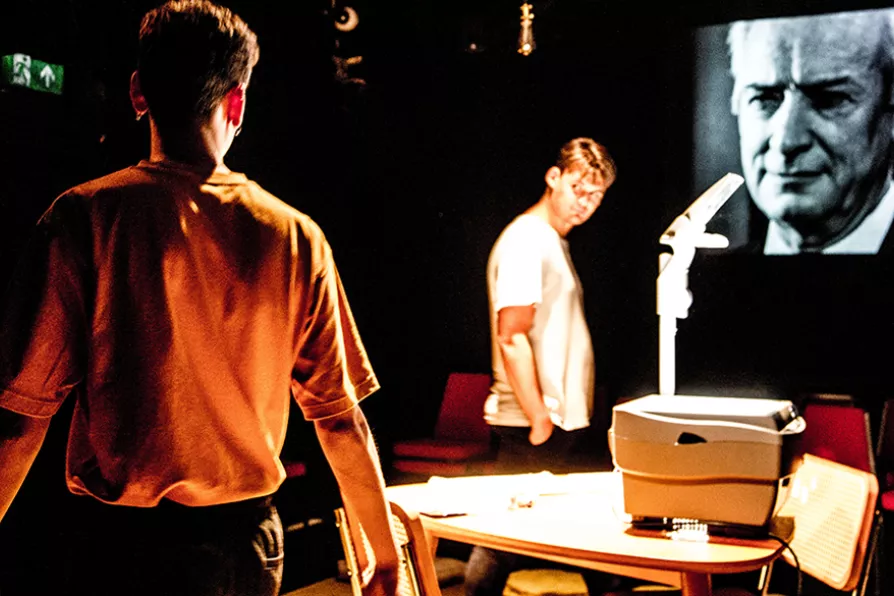MARIA DUARTE recommends an extraordinary film that explores an absent father’s attempt to make up to his sons

 SPEAKING TO THE PROTEST MOVEMENT: Gabriele Uboldi and Samuel Rees in Lessons On Revolution
[Jack Sain]
SPEAKING TO THE PROTEST MOVEMENT: Gabriele Uboldi and Samuel Rees in Lessons On Revolution
[Jack Sain]
LESSONS IN REVOLUTION (★★★★★) is a play that at times resembles a live action essay, and a poignant look at the dialectic of failure and legacy.
Stitched together by soundscapes, photos, video, audience participation and, fittingly for the narrative, an overhead projector, this is a unique multimedia production held in the intimate stage of the Former Woman’s Locker Room at Edinburgh’s Summerhall.
Produced and performed by playwrights Gabriele Uboldi and Sam Rees, the play weaves a compelling view of the web of global capitalism in a story that takes the audience from the former British colony of Rhodesia to the cramped slum apartments of modern-day London.

MATTHEW HAWKINS recommends three memorable performances from Scottish dance artists Barrowland Ballet, In the Fields Project, and Wendy Houston

In his second round-up, EWAN CAMERON picks excellent solo shows that deal with Scottishness, Englishness and race as highlights

SIMON PARSONS is beguiled by a dream-like exploration of the memories of a childhood in Hong Kong

Including races at Newbury, Newmarket, Thirsk and Doncaster










